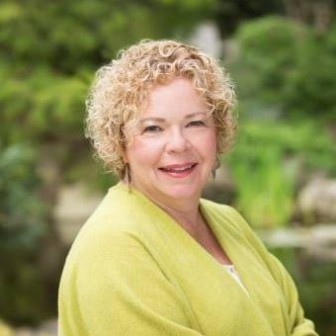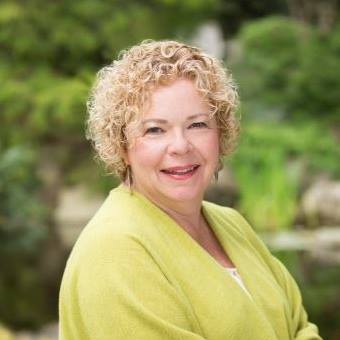This is the latest in our ongoing interview series, On The Record. Last week, we had the opportunity to sit down with Raleigh City Councilor Kay Crowder to talk growth, neighborhood preservation and improving the City’s transit system.

Kay Crowder
Kay Crowder doesn’t like giving interviews.
So she says. Over lunch at Player’s Retreat last week, where even a tempting, off-menu Fried Green Tomato Sandwich couldn’t deter her from her regular Hawaiian Burger, Crowder was eager to discuss everything from the city’s exponential growth to the importance of honesty and mutual respect in governance.
A Raleigh native who can trace her roots back to its founding families (she is a direct descendant of Isaac Hunter), Crowder considers herself fortunate to have a role in helping to shape the city’s future.
“It’s an exciting time to live in Raleigh, it’s an exciting time to help the government and try and steer in the right direction; sometimes you become overwhelmed with all that’s going on, and you try and compartmentalize all these different things,” Crowder said.
“Then I go home and I think, what a wonderful problem that is for us to have.”
Exacerbating this wonderful problem, Crowder said, are the countless magazine rankings which often list Raleigh as one of the best places in the country to live and do business in.
“This group of publications putting those out, it brings lots of opportunities and struggles,” she said.
“We have to decide what the balance looks like, because we want to protect and preserve the quality of life in the City of Raleigh, but we also want to encourage economic development.”
“It’s a balancing act.”
The Importance of Collaboration
Part of that balancing act involves working with the Mayor and the six other Councilors in coming up with the best approach to dealing with any given issue.
“I think Council does a really good job of working together on those issues of balance; we don’t always agree, but we always respect each other’s opinions.
“The city is lucky to have a Council that really does want to enhance the quality of life for both businesses and residents, and I feel lucky to be a part of that.”
Just as important as working with her fellow elected officials, Crowder said, is making sure that both residents and businesses are involved in the conversation.
“One of my goals is to help people understand that everyone needs to be heard; we all have the common goal of wanting to create a great city,” she explained.
“Part of the City’s mission, and certainly of my mission, is to make sure we have all the stakeholders in place and listen to all of them, they’re all equally important and they should all always get a voice at Council.”
In addition to giving members of the public the opportunity to speak during Public Hearings and Council’s bimonthly period of public comment, Crowder says meetings held by the local Citizens Advisory Councils and the District D Alliance give her and her neighbors the chance to discuss things in a more personalized setting.
“My constituents keep me in check,” Crowder said with a grin.
“If there’s something they don’t like, they’ll let me know, and I love that about them.”
More often though, Crowder said, conversations with her constituents are focused around collaboration, rather than criticism.
“It really is important to engage people, I get to hear what they’re thinking, and they get to hear what we’re thinking about doing at the City; with their input, and with staff input, we can make things better,” she said.
“Any time we’re working as a group collectively, I think we all win.”
A Growing City
Although its population has grown every year since it was chartered in 1792, it’s only in recent years that Raleigh has experienced truly explosive growth and become known as a destination for new residents and new businesses alike.
On average, Crowder said this growth brings about 63 new residents per day into Wake County, the majority of whom end up settling in the City of Oaks.
The Raleigh of her youth, Crowder said, was a much smaller, more rural place to live.
“It was more pastoral,” she said.
“It was a fairly small city for a capital city, where we had the government, and there were limits to what that means, but geographically it was small, I think the biggest thing — although I’m not sure I love it all the time — is the urban sprawl that’s happened over time.”
Having grown up on a farm herself, Crowder said there used to be a lot more agriculture in and around the city than there is now.
“I remember as a child driving down Blue Ridge Road — that was the connection back then to get over to 70 — in a red ’55 Ford Fairlane, and I remember driving through there and seeing all the pastoral farm land, and that was a wonderful thing.”
“But what’s happening on the Blue Ridge Corridor right now is really exciting, with the State making some of those properties available for economic development, it’s an exciting time for that.”
In addition to the city’s increased size and density, Crowder said she’s noticed a number of other changes over the years as well.
“The cost of living has escalated: that’s a good and a bad thing. It’s good because it means the city is growing, becoming a prosperous place to work in and to bring businesses to,” she said.
“But it also puts pressure on the people who live here to move out, and moving means we have to figure out how to get them into the city for work.”
“My constituents clamor a lot about traffic; we’re lucky enough to live in a district where there’s a lot of diversity; District D has always been known as a creative district, people here will take transit, you just have to make it so they want to use it.”
Crowder stressed the importance of the upcoming transportation bond referendum, saying it was crucial to making the city’s transit system more viable.
“In order to use transportation effectively for work or to manage your life, you have to have 15-minute headways, the bus has got to come every 15 minutes, it’s got to be on time, it should be clean, it should have Wi-Fi and other enhancements in it,” she said.
Crowder added that one of the most important — and often overlooked — aspects of improving the public transit experience in Raleigh is simply making it simpler to purchase tickets. The current on-bus system requires exact change or a pre-purchased pass.
“To make people want to ride it, we’ve got to have an easy way to pay.”
Neighborhood Advocacy
Although Crowder has a well-known reputation as an advocate for existing neighborhoods, she said this doesn’t mean she’s opposed to growth and new development and emphasized again the importance of striking a balance.
“I look at something like the second phase of the Hillsborough project, and the whole area plan for Hillsborough, and we have to look at that and determine, what can the neighborhoods house on their edges, will they be able to deal with the traffic and other impacts.”
“It’s my job to hear what [residents] have to say, but it’s also my job to educate them as to why we need an economic engine, how it helps their property values, how it helps the job situation,” she said.
As it happens, Crowder has an interesting economic development idea of her own, one that would transform a portion of the once-bucolic Blue Ridge Road into a “mini North Hills.”
“I often look at the Kmart property,” she said, which is located at the intersection of Western Boulevard and Blue Ridge Road.
“It’s right at rail, we want density at rail, I can envision… a mini-North Hills, if you will, because there’s a lot of people who live in that area. If you want density around the train corridor, that seems like the perfect opportunity. It’s a big spot.”
Crowder believes planning for future developments like this happens to be one of the City’s strong suits.
“In a non-recessionary year in the City of Raleigh, we issue 5,000 housing unit permits, and we permit over five million square feet of nonresidential floor space,” she said.
“To give you a reference point on that, it’s the equivalent to 20 ‘401 Oberlin’ buildings and 10 Wells Fargo towers every year. It just shows the dynamics of the area and the city, so when you’re pushing out that kind of permitting, it’s important us to really think about our planning processes.”
Crowder said the City is fortunate to have a number of talented planners, including Ken Bowers, Travis Crane and Eric Lamb, on staff to help develop and work within these processes. Under the direction of City Manager Ruffin Hall, she said there is an incredible amount of productive and engaging communication between staff and Council, which she said helps them to make better decisions and reach better outcomes.
Despite the strong planning framework provided by Staff and through the Unified Development Ordinance, Crowder readily acknowledges that not all problems have a technocratic or bureaucratic solution, and balancing growth with neighborhood preservation is an issue that is often dealt with on a case-by-case basis.
“The neighborhoods have a character that’s a fabric that belongs to Raleigh; I don’t want to lose that. I want to take the fabric we have and weave it into the new, and I think that the City’s been successful at doing that.”
Given her long-stretching ties to the community, Crowder said she has a direct interest in making sure that fabric remains strong. While she knows she can’t please all of her constituents all of the time, she said she always makes a point of being as direct and honest with them as possible.
“What you hear from me is what you get. Integrity means something to me.”
